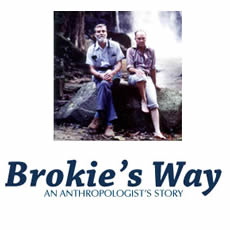PERSONAL NOTES
Re-reading my annual report for 2014, which most of you received, I see that little has changed in my admittedly rather lazy lifestyle.
To bring you up to date on my state of health, I mention a recent incident, when I registered with a new dentist. (My former dentist practises a half hour’s drive from my home, and these days I restrict my driving to Fish Hoek and its immediate environs.) A questionnaire asked whether I had any serious illness, and on answering in the negative, I realised how lucky I am. I do have several minor medical problems, but they are all taken care of by Madeleine Acton, my outstanding GP. A second question asked what medications I took, and I told the receptionist that there were simply too many to list. When I was a small boy, about seven years old, I watched my dad packing for his regular trip (by train, we had no car in those days) to Pietermaritzburg, to attend the sitting of the Natal Supreme Court. I was puzzled by the number of pills that he was sorting out for his journey. Now I am exactly like my dad, taking at least ten pills each day.
For some time I have been bothered, like most elderly men, with nocturnal leg cramps. I was waking up four or five times in the night, and having to get up to stretch before I could go back to bed. In desperation, I turned to the Internet, where I discovered that many had found relief in a very strange remedy: inserting a tablet of fragrant soap between the sheets. It worked for one night, and then had no effect for several nights, and now relief has started again, which gives me blissful, peaceful sleep: it sounds like magic, but as long as it works I will keep on putting the soap - an ordinary bar of LUX soap - between my sheets.
A final (boring, sorry) note on my health: I can walk (not very briskly) on the level, but ascents leave me winded, and I get wobbly (even without having a glass of wine) on stairs. Lorraine, my kind neighbour, gave me a panic button, a sensible precaution, living on my own.
In July, two of my dearest friends – Enid Bates and Martin West – died, causing me, apart from missing them, to think on my own mortality. I resolved to facilitate the task of my niece, Chris Moir, who is my executor, so I (a) revised my will, and (b) started to sort some of the accumulated clutter in my home.
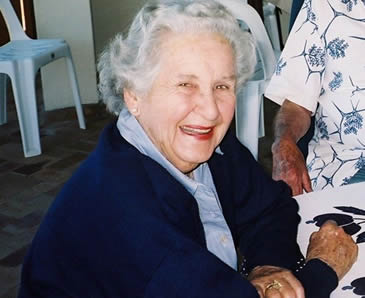
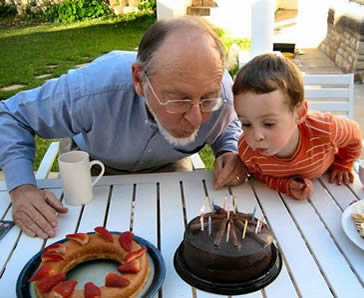
Fortunately I still have several good friends, who keep an eye on me, whom I see regularly and provide good company. They include:
Elke, who lives in Fish Hoek and who joins me for weekly dinners – at my home, because I do not drive at night; we alternate in providing the food, and we always have much to talk about. Elke has just published a short book, Can We Talk.... Will I Listen? A journey towards the healing power of dialogue. An endorsement (by my friend Professor Pumla Gobodo-Madikizela) on the back cover states: "as a descendant of parents who were swept up in Nazi ideology, and having become an adult during the height of silence about this past in Germany, Elke was conscious of the need for dialogue about the past in South Africa, especially at a time when issues of race are dominating public debate.."
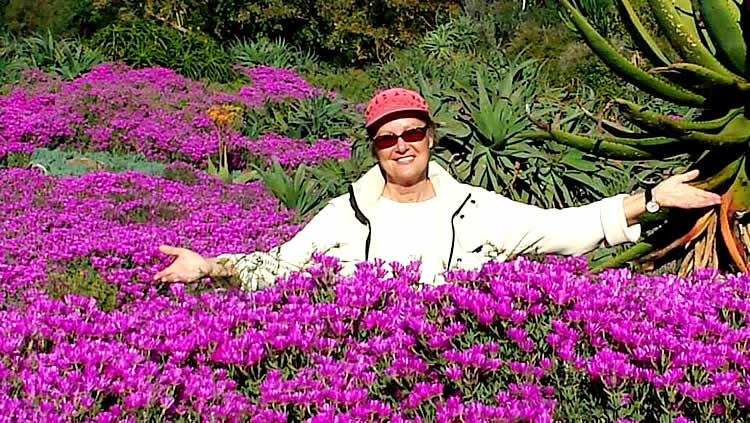
I met Elke in unusual circumstances: as a schoolboy I was friendly with our neighbouring boy, Alistair Dark, whom I mention a few times in Brokie’s Way. In 1995, when we were living in England, Michael, a mutual schoolboy friend, told me that Alistair and his family were living in London and suggested that I contact them. I was reluctant at first, because I had not seen Alistair since my brother Paul’s wedding in 1945. Fortunately, Michael persuaded me, and Alistair and I easily resumed our old friendship. Through Alistair, I met his daughter’s friend Elke,who moved to South Africa - and settled in Fish Hoek - in the year 2000 just one year after Bernard and I had come here. For many years Elke ran a non-profit organisation, NALA, encouraging African women entrepreneurs.
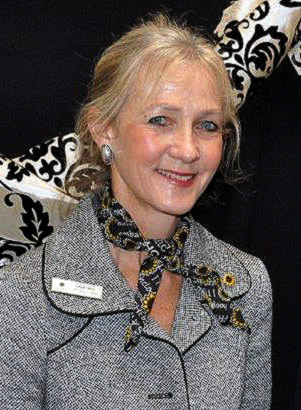
My niece Chris lives not far away, and keeps in regular touch; Chris is the main person at the Sunflower Fund, which helps children with leukaemia. One of her main tasks is to persuade people, especially Coloured and African people, to donate bone marrow, at which she is very successful. Elke and Chris, as well as Val West and Christopher, are my most welcome and much appreciated drivers, who take me to see plays, movies and concerts, to lunches or simply to see friends.
I do go, from time to time, and only in the daytime, to Cape Town by train, but the trains between Fish Hoek and Simonstown, a stretch that includes my local station Sunny Cove, have not been operating for over a month, because of “sand on the line”. The road was built too close to the sea and the dunes. When I do go in by train, Christopher (below), who works in Cape Town but lives in Fish Hoek, drives me home. Christopher, along with Elke, is my most frequent visitor, popping in on his way home at least once a week, sometimes accompanied by his bright, lively Zimbabwean boyfriend, Taps (Tapuka).
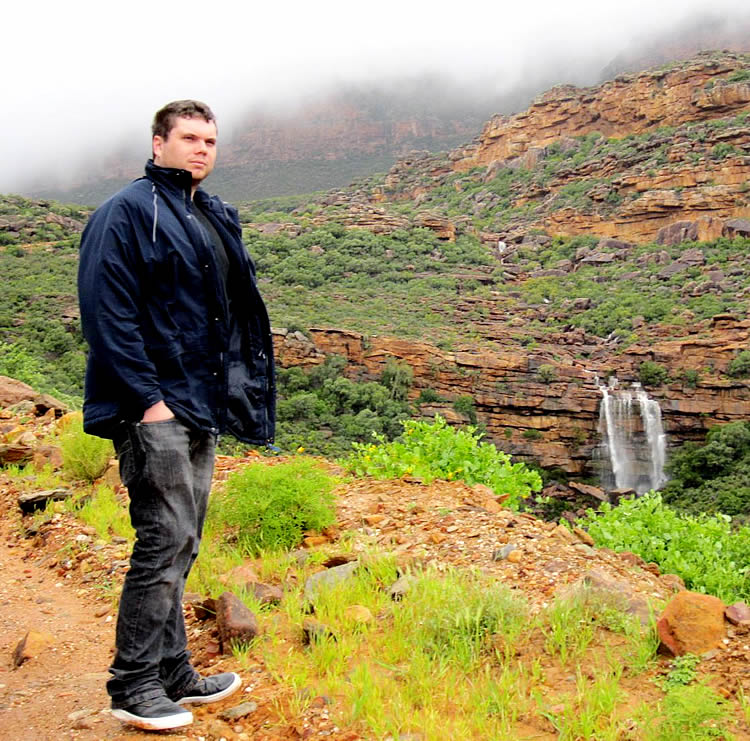
Steina, the (coloured) nurse who helped me look after Bernard in his last two years, is a remarkable woman, who comes for coffee and a chat about once a month. Her husband, Daller, who was a skilful builder, is now disabled, as is her eldest daughter who requires bimonthly and expensive treatment at Groote Schuur hospital. Steina’s two eldest sons have jobs and live away from home. Her daughter Avana, aged 16, has been accepted at a boarding school at Stellenbosch, which has a special pre-med three-year course: Avana hopes to be a surgeon. Two younger daughters are still at school and in addition Steina is looking after the daughter of her sister, who was killed in a road accident; this little girl starts primary school next year. Steina works as at a nurse at one of our retirement homes but her salary is not very high. Steina hopes to start a special nursing course which will allow her to be a nursing sister and to earn a decent salary. Despite all her burdens she is always well-dressed, composed and practical. Steina long ago agreed that should I need help in the future, she will come and look after me, or if she not available, she will find a reliable substitute: this is very satisfying to me, as I dread the thought of living in a retirement home.
I have many other friends, who live further away, and whom I do not see so often, and of course, I have you, my email friends, who occupy a significant part of my life. I invite friends for lunch or dinner about once a week; recently I prepared three meals in four successive days, quite unusual for me, but good to keep me on my toes. (I can - almost - hear Bernard, who did most of our cooking, saying “Well done, Brokie”). I know that I am always going on about my early morning beach walks, but they really are an important part of my life: it is a lovely time of day, the outlook is glorious (I occasionally see dolphins, or whales), I enjoy greeting my beach buddies and their dogs, it is good for my morale, it gives me a chance to contemplate my life and it is encouraged both by my GP and by my physiotherapist.

